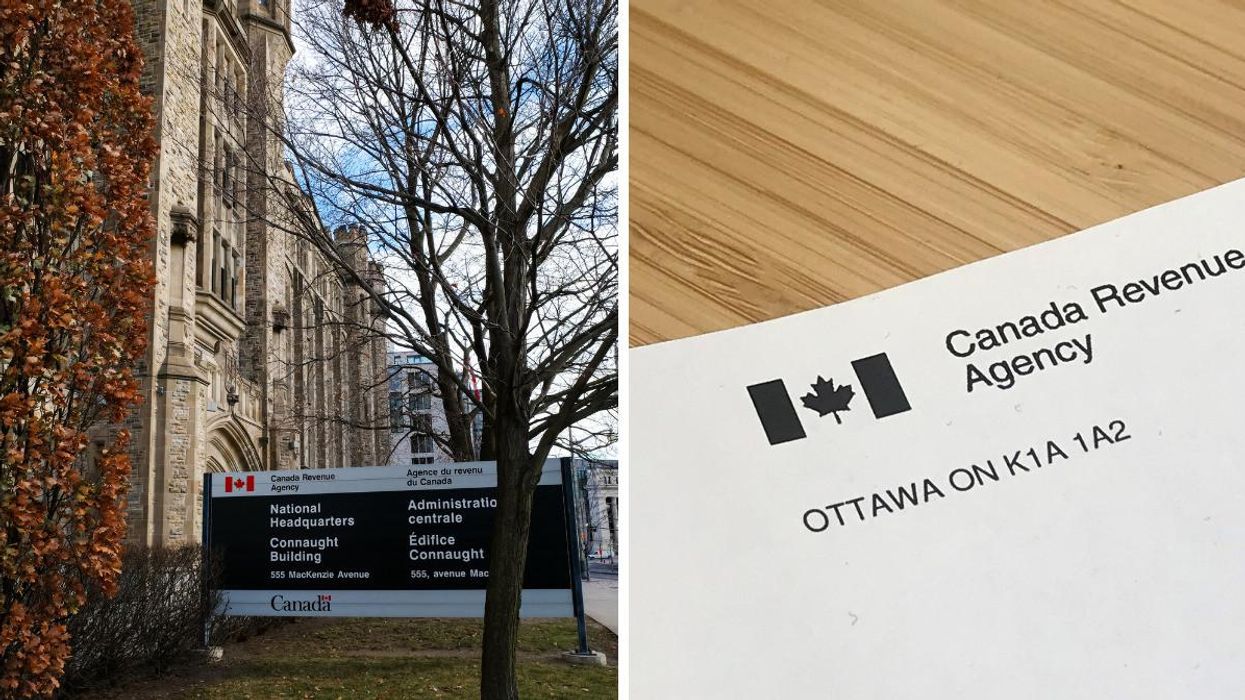Here's Everything You Need To Know About CRA Audits On Your Taxes, According To An Expert
If you work in these industries, you might be on the CRA's radar. 👇💸

The CRA headquarters. Right: CRA letterhead.
Canada Revenue Agency (CRA) audits can happen on your taxes and there are things that you should know in case it happens to you.
After the tax season, the CRA can conduct an audit on the taxes of any person or business if it feels that that person has made errors on their tax return or if there is "potential non-compliance with tax obligations," according to the agency's website.
An audit on your taxes conjures up images of piles of receipts and combing through every purchase you've made in the last year which sounds stressful.
So, Narcity sat down with tax expert Gerry Vittoratos from UFile to try to understand what triggers an audit, what happens during it, and what you can expect if you're selected by the CRA for one.
"The main causes of audits are usually overly inflated claims for certain expenses," said Vittoratos.
Examples are medical expenses, donations, certain business expenses like vehicle expenses, and claiming what the government considers capital expenses, such as building improvements for a rental, as current expenses.
However, this isn't the only way to get on the CRA's radar.
For individuals, the most common targets of the CRA are those who are self-employed, own rental property or "employees deducting employment expenses like a home office."
More cash-focused businesses such as restaurants, convenience stores, taxi services and even construction are other common targets of an audit.
"The CRA wants to make sure that these businesses are declaring all their income," Vittoratos noted.
\u201cWhat\u2019s the difference between an audit and a criminal investigation? https://t.co/u5SBiFdUvT #CdnTax #TaxEvasion\u201d— Canada Revenue Agency (@Canada Revenue Agency) 1673469912
If you or your business is selected for an audit by the CRA, the process can go one of two ways.
Vittoratos said that if someone's been selected for an audit, "the CRA will send a letter to the individual asking for receipts for the expenses they find unusually high."
"There's usually a one-month delay to produce the receipts they require," clarified the tax expert.
As for a business that's suspected of underreporting income, well, they likely will be paid a visit.
"It is not unusual for the CRA to visit the offices of the companies to comb through their accounting records," said Vittoratos.
After the audit, if you're found to owe some cash to the government, they'll ask you to pay the amount back "with interest charged due to late payment," according to Vittoratos.
Also, penalties could be added to that amount if it's confirmed that you underreported your income.
If it's determined that you don't owe anything, "the government will provide a letter to confirm that nothing additional is owed as a result of the audit," Vittoratos said.
While an audit can be a bit stressful or worrisome, hopefully this rundown by an expert in the field will help ease some of the worries that might be hitting you this tax time.
The tax deadline is May 1, 2023, and there are actually a tips to help you save money on your taxes this year, with some new updates to benefits and credits.
This interview has been condensed and edited for clarity.